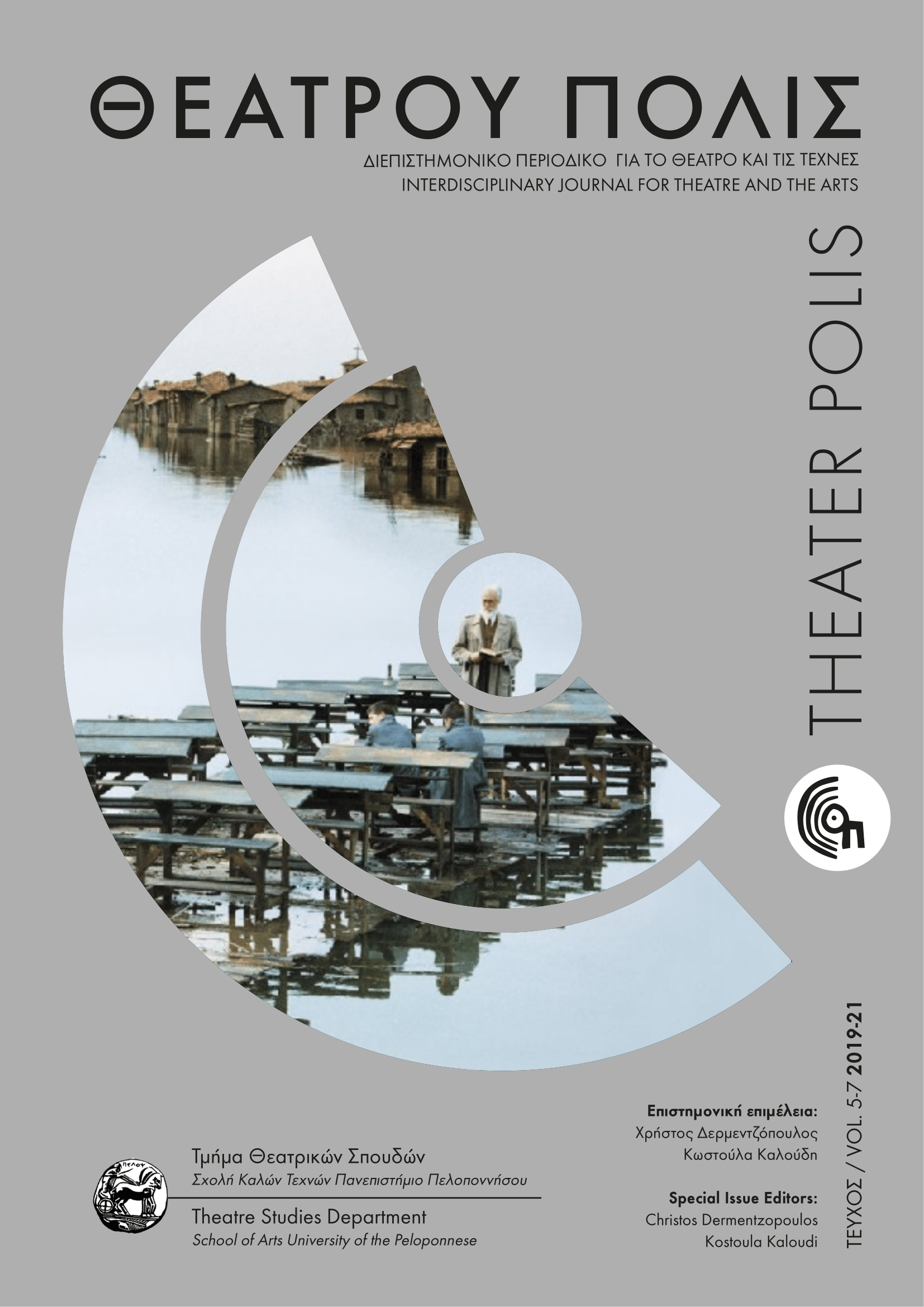Ararat (2002) by Atom Egoyan: that which lacks sense never happened
Abstract
The issue of applying a “classical” cinematic direction to the representation of traumatic historical events has persistently proven thorny and intractable. Atom Egoyan’s Ararat (2000) is an attempt at highlighting this complicated conflict between cinematic narrative and historical necessity. Through an aesthetic of scattering and a stratified narrative, the Canadian director’s approach manages to bring to the foregroundthe complexity of the process of representation and the inadequacy of image and language. The intricate historical webs that the film weaves only ever lead to historiographical dead ends, rendering the characters’ grief impossible and establishing the Catastrophe as inescapably present, no matter how much time has passed.
Article Details
- How to Cite
-
Βασιλείου Θ. (2022). Ararat (2002) by Atom Egoyan: that which lacks sense never happened. Theater Polis. An Interdisciplinary Journal for Theatre and the Arts, 51–62. https://doi.org/10.12681/.30711
- Section
- Articles
Τα πνευματικά δικαιώματα των δημοσιευμένων άρθρων ανήκουν στο περιοδικό. Απαγορεύεται η μερική ή/και ολική αναδημοσίευση κειμένων που δημοσιεύονται στο περιοδικό, χωρίς την συγκατάθεση της των Επιμελητών ή της Συντακτικής Επιτροπής και επιβάλλεται αναφορά στην πρώτη δημοσίευσή τους στο περιοδικό Θεάτρου Πόλις.



